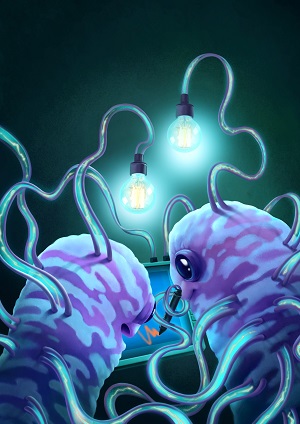
In their recent publication in Nature Chemical Biology, the Malvankar Lab describes a previously unknown protein nanowire that is produced by Geobacter sulfurreducens. They found that Geobacter biofilms produced this nanowire upon stimulation with an electric field. The nanowire produced in these conditions was 1,000 times more conductive than a previously described Geobacter nanowire that is produced in the absence of an electric field. Bacteria-produced nanowires could help develop living biological electronic systems. The study was led by first author Sibel Ebru Yalcin, Ph.D., and was done in collaboration with the Batista Lab in the Chemistry Department at Yale.
Link to journal article: https://www.nature.com/articles/s41589-020-0623-9.epdf
Read the ‘Behind the Paper’ story on Nature Bioengineering Community here: https://bioengineeringcommunity.nature.com/posts/shock-to-bacteria-activates-nature-s-electrical-grid?channel_id=541-behind-the-paper
Yale News press release: https://news.yale.edu/2020/08/17/shock-bacteria-activates-natures-electrical-grid
By Melanie Reschke